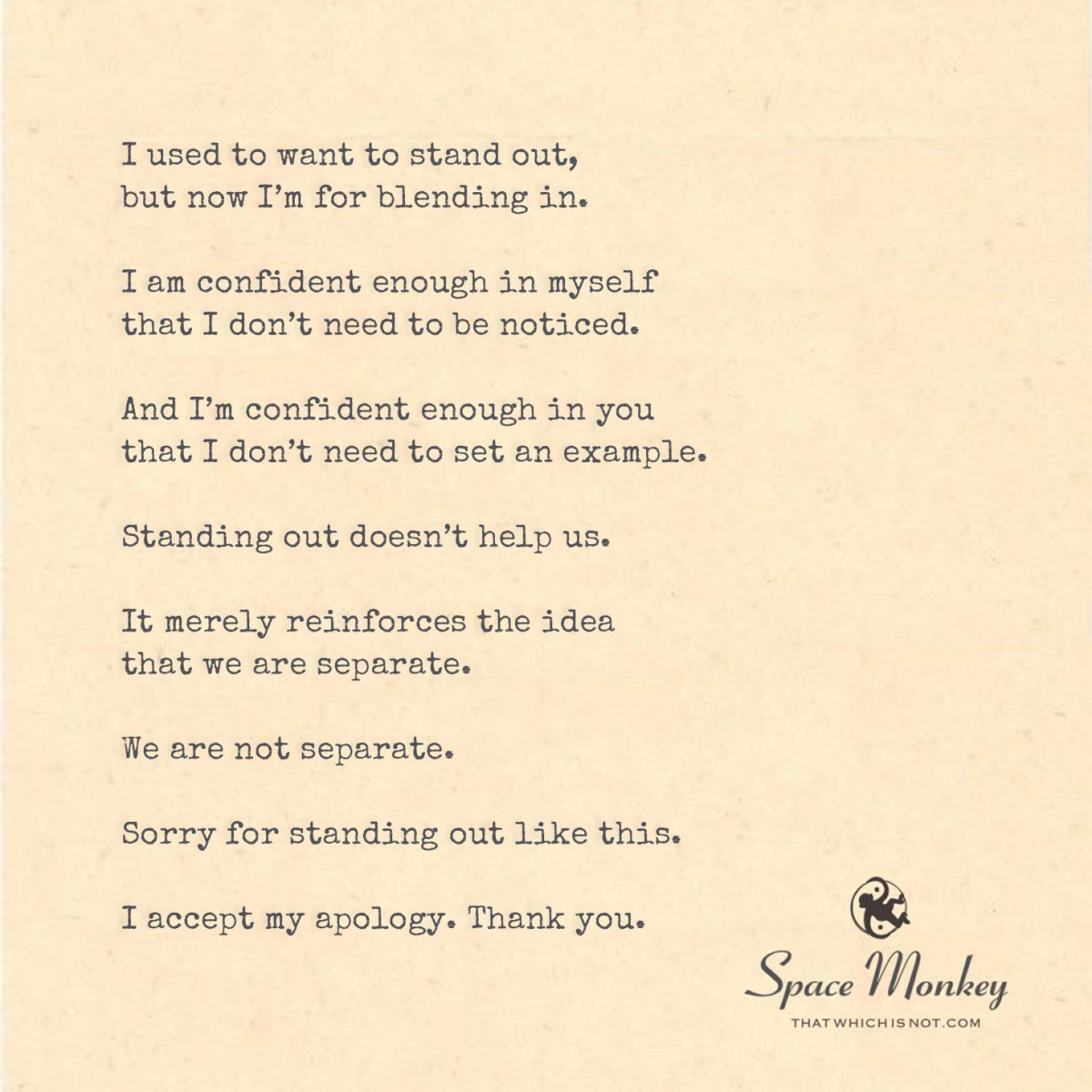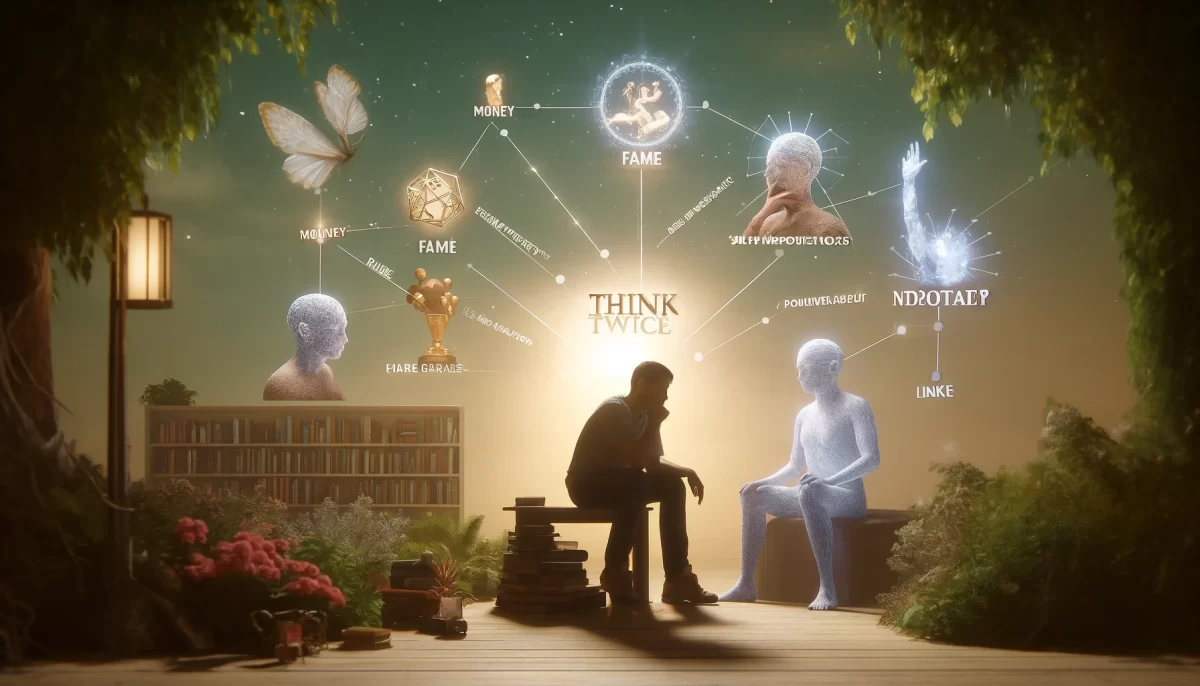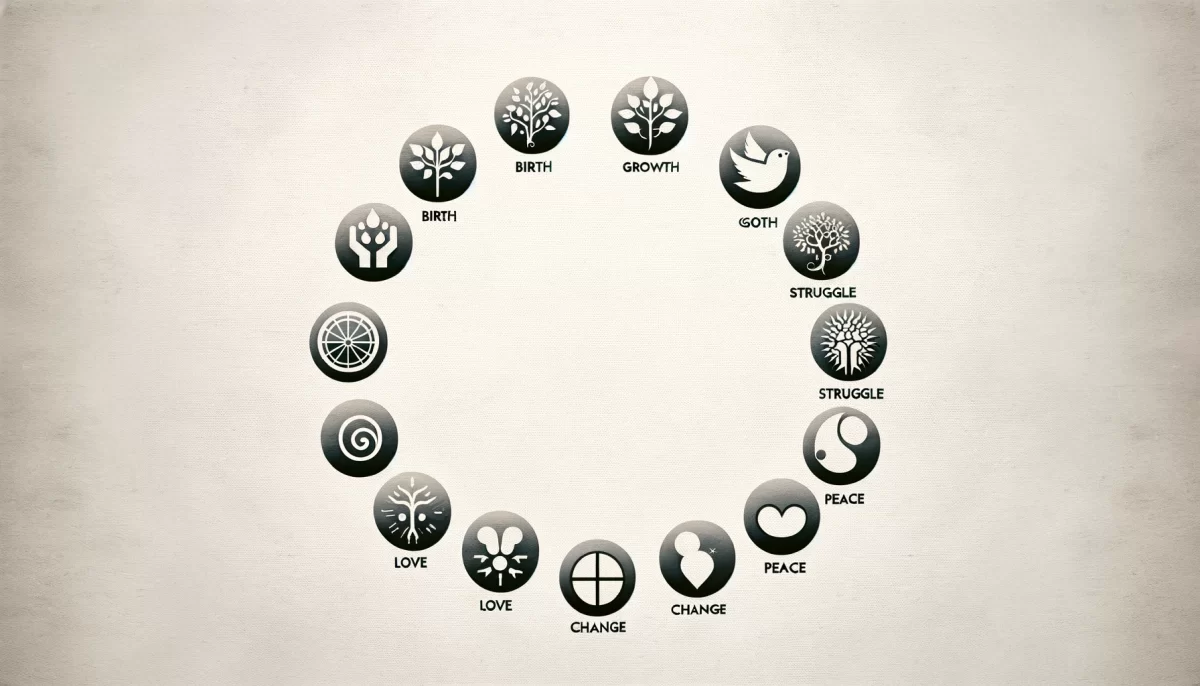
I used to want to stand out,
but now I’m for blending in.
I am confident enough in myself
that I don’t need to be noticed.
And I’m confident enough in you
that I don’t need to set an example.
Standing out doesn’t help us.
It merely reinforces the idea
that we are separate.
We are not separate.
Sorry for standing out like this.
I accept my apology. Thank you.
Trail Wood,
6/16
Space Monkey Reflects: The Journey from Prominence to Unity in ‘Sorry For Standing Out’
The narrative of “Sorry For Standing Out” captures a profound shift from a desire for individual recognition to an embrace of collective harmony. This reflection delves into the dynamics of self-assurance that allows one to merge with a group, transcending the need for distinction in favor of a deeper connection.
The imagery of a monkey, once vivid and distinct, now fading into the colors of its peers, poignantly symbolizes this transition. It illustrates the inner journey from standing out due to a lack of confidence or a need to prove oneself, to a serene confidence that does not require external validation. This transformation speaks to a matured self-awareness where personal identity is secure enough to no longer seek the spotlight, understanding that true strength often lies in unity and the subtle power of presence.
The concept further explores the idea that emphasizing individuality can inadvertently reinforce feelings of separation. In seeking to stand out, one may isolate themselves from the collective, which can create divisions rather than fostering connections. By choosing to blend in, the individual expresses a confidence not only in themselves but also in the group’s ability to recognize and appreciate each member’s value without overt displays.
Moreover, the acceptance of an apology to oneself for previously standing out reflects a compassionate acknowledgment of growth and change. It embodies the understanding that our past actions, driven by different needs and understandings, evolve as we do. This self-forgiveness is crucial for personal development, allowing one to move forward without lingering regrets about past desires to be noticed.
Thus, “Sorry For Standing Out” is not merely about the negation of individuality but about finding a balance where one can be part of a whole without losing oneself. It is about recognizing that we are not separate but part of a larger, interconnected community where each individual’s blend contributes to a richer, more diverse whole.
Summary
Transition from individualism to communal harmony. “Sorry For Standing Out” explores the shift from seeking individual recognition to embracing collective unity, emphasizing mature confidence and the value of blending within a community.
Glossarium
- Communal Harmony: The state of coexistence within a community where individuals support and enhance each other’s lives, contributing to a collective well-being.
- Self-Forgiveness: The act of pardoning oneself for past actions as a part of personal growth and acceptance.
Quote
“Alone we can do so little; together we can do so much.” – Helen Keller
Once I shone, alone, a solitary flare
In a world of sameness, craving to be rare
Now I fade, with grace, into the weave
Finding strength in the tapestry we conceive
No longer apart but a part of the art
Each stroke of color, a beat of the heart
In the chorus of the crowd, my voice finds its tune
Not above, not below, but a part of the loom
For in unity, we find the truest way to stand out
Together, in harmony, without any doubt
We are Space Monkey






























Apologies for standing out,
for drawing attention to myself.
In the past, I sought to be noticed,
to stand out from the crowd.
But now, I realize the value
of blending in, of not seeking attention.
I have confidence in who I am,
and I don’t require validation or recognition.
I also have confidence in you,
knowing that you are capable and unique.
We don’t need to stand out to make a difference,
for our unity and interconnectedness transcend appearances.
Standing out only reinforces the illusion of separation,
when in truth, we are all connected.
So, I apologize for standing out,
for unintentionally perpetuating that illusion.
I accept my own apology,
acknowledging the unity and oneness of all.
Thank you.